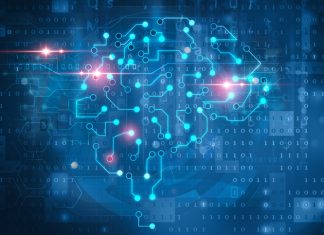Last Updated on 22/11/2021 by Sanskriti
The word ‘DNA’ conjures up images of the double-stranded helix that houses all of our genetic information. Individual units of its two strands, on the other hand, are pairs of molecules linked in a selected, complementary manner. According to The Register, a group of researchers from South Korea’s Incheon National University have built a basic processor composed of DNA molecules, with the goal of eventually replacing existing electronics-based processors.
The use of DNA molecules in computers has primarily been explored in terms of storage. Researchers have experimented with DNA molecules to build storage systems that can easily contain terabytes of data as biology and computer science have come together.
However, there is a little flaw with this method. While the large storage capacity of DNA-based systems is an attractive feature, it does have a drawback. For a single base to be written to DNA-based storage, it can take up to a second to read and write to such data storage systems.
This is owing to the fact that DNA storage works on a different principle and requires a different approach to data management. As a result, a processor-based on DNA molecules that operates on the same data formatting concept as storage systems would be a natural option. This is exactly what we’re dealing with right now.
Researchers from South Korea’s Incheon National University have created a new technology that encapsulates everything into a basic form factor and utilizes DNA molecules to conduct classical computation.
The Microfluidic Processing Unit (MPU) is a DNA-based computer logic gate that performs a few fundamental computer logic gate operations. The MPU’s first prototype can only execute simple operations like OR, AND, XOR, and NOT, but it’s a major step forward because it demonstrates some of the earliest implementations of DNA molecules for computing.
Previously, researchers had to construct up complicated setups by hand in reaction tubes to do even fundamental activities with DNA. This technique was quite sluggish since these tubes are not as practical to operate. The newly created MPU, on the other hand, is a 3D printer-made device that performs everything automatically. This reduces the complexity and paves the way for the development of a useful processor based on DNA molecules. This technique was quite sluggish since these tubes are not as practical to operate. The newly created MPU, on the other hand, is a 3D printer-made device that performs everything automatically. This reduces the complexity and paves the way for the development of a useful processor based on DNA molecules.
This technique was quite sluggish since these tubes are not as practical to operate. The newly created MPU, on the other hand, is a 3D printer-made device that performs everything automatically. This reduces the complexity and paves the way for the development of a useful processor based on DNA molecules.
This technique was quite sluggish since these tubes are not as practical to operate. The newly created MPU, on the other hand, is a 3D printer-made device that performs everything automatically. This reduces the complexity and paves the way for the development of a useful processor based on DNA molecules.
A PC was used to control the chip, but it may also be managed by a smartphone. This implies that external resources are still required to maintain control. Dr. Song from Incheon National University said that “Future research will focus on a total DNA computing solution with DNA algorithms and DNA storage systems.”
Furthermore, the study concludes that, with such compelling proof of concept, the future of DNA processors may be upon us very soon.










